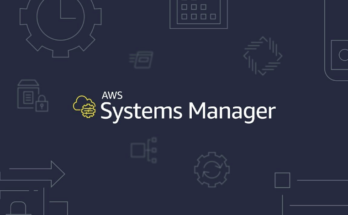The most popular operating system for computers is Windows. According to StatCounter, Windows has more than 30 percent of the global market share. macOS and Linux are behind, but it does not mean that the two are inferior to MS Windows.
If anything, these two operating systems offer a plethora of neat features and fit profiles of certain individuals and businesses. Ultimately, a lot comes down to one’s needs.
At the same time, someone might be looking to try a different OS, and switching from Windows to Linux or macOS could be just the thing.
Knowing the key differences between the two will make you decide easier, and you can find these differences below.
Overall Performance
Let’s start with the overall performance. As a rule of thumb, you should not expect your computer to run optimally if you neglect to take proper care of it.
Having said that, both macOS and Linux are pretty great in terms of operational stability. Users are less likely to encounter issues if you compare the experience with MS Windows.
Thanks to regular system update protocols that improve the performance, macOS offers a stable and reliable platform.
For Linux, a lot comes down to distros. Distros depend on the computer’s hardware. In other words, the power of your computer determines what distro should be used. For instance, low-end devices should lean toward distros like Peppermint, whereas high-end machines are optimal for Ubuntu due to their resource-hungry nature.
One final thing to note about performance is that you will need a powerful device to keep up with the latest macOS updates. The OS is known for working on high-end devices optimally and struggling on low-end machines, which is not something to worry about as a Linux user.
Hardware
Hardware is another topic to tackle. Since Apple manufactures its computers with integrated hardware, there are hardly any opportunities to change it (that is, if you run macOS on a MacBook and not a different computer via an emulator or a similar method).
For instance, running out of disk space on the integrated hard drive means seeking external accessories or cloud services as a source to solve the problem.
The price for Macs is premium, but the money is worth it. The approach of sticking to “in-house” manufactured hardware exists to create an easier streamline for finding optimal solutions for software-hardware balance.
Linux made a leap in driver support—an area that they were lacking in for many years. Combine this improvement with overall solid hardware support, and you have a good option in Linux.
Security

Security should be one of the key things to consider when you are on the market for a new operating system. Linux and macOS have dedicated support to fight against cybersecurity threats, so there is no clear winner in this department.
Thanks to regular system updates, users have fewer worries about dealing with malware and other threats.
Of course, third-party tools, such as antivirus or cleaner apps, introduce even more security. And while they are recommended, using these tools is not mandatory, particularly if you follow secure practices of using your computer, such as avoiding fishy URLs and backing up important data to cloud services.
Customization
Customization is definitely an area where Linux is superior to macOS. Since Apple pushes new major macOS versions with predefined features, it means that there is little to no room for customization.
Meanwhile, Linux is an entirely different story. Making changes to either the terminal or GUI is not an issue.
Updates
The frequency of updates is hard to determine, so it is better to emphasize how difficult or easy it is to actually handle those updates.
macOS excels in its simplistic approach. Basically, no tech knowledge is mandatory as you can download and install an update with a click of a button.
With Linux, on the other hand, it takes more than just a general understanding. Because updates occur in the terminal, you need to be well-versed in understanding the intricacies of Linux’s terminal.
Gaming
If there is one area where macOS and Linux are lackluster, it would have to be gaming. Between the two, macOS is a better pick.
However, there is no need to beat around the bush. Neither of the two operating systems is recommended for video games. Instead, it is better to stick to Windows or a gaming console if you are interested in that particular pastime.
Who are both platforms for?
Those who have the money and are not afraid to use it are better off with macOS because it is robust, polished, and user-friendly.
And if you are not too keen on macOS, Linux also offers both veterans and newcomers. And while you are at it, be wary of distros and pick one that suits your knowledge.




